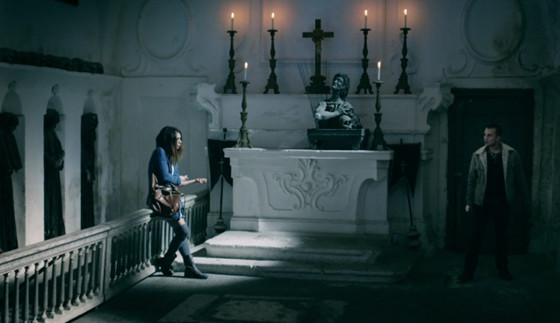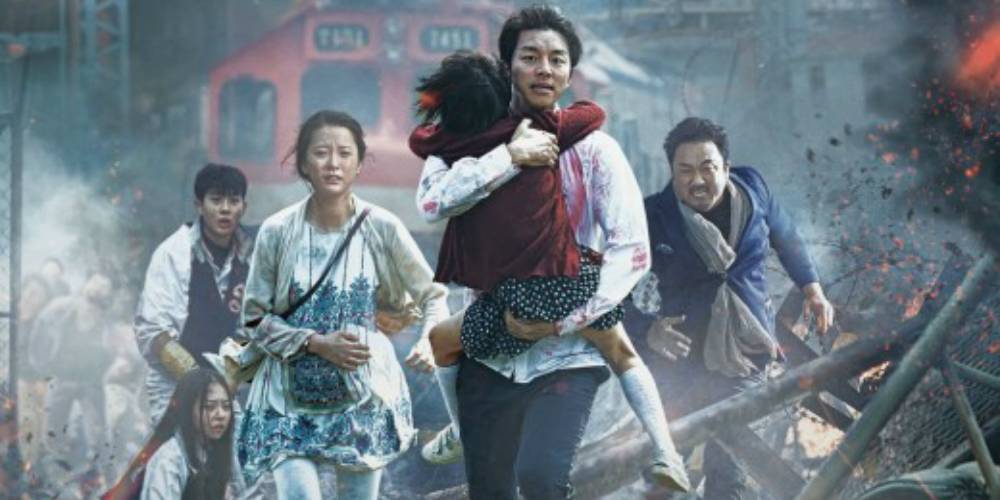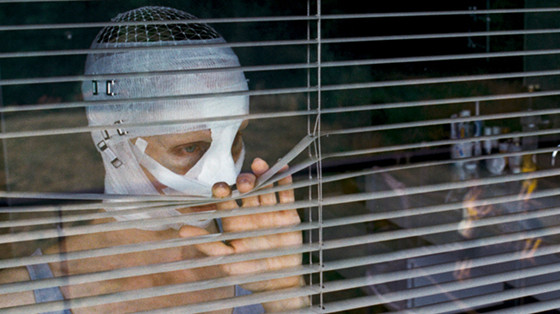6. Kill List – PTSD

Ben Wheatley’s disturbing mixture of occult horror film and slow-burn crime thriller expertly uses its editing, soundtrack and cinematography to let the spectator know that something is not quite right with it. When it finally reveals everything in the end, in one of the most cruel and grotesque plot twists in recent memory, Kill List not only pays off as a cinematic experiment, but also as a thematic exploration of the effects of PTSD.
Saying too much about it would ruin the experience for first-time viewers, but Wheatley’s carefully constructed plot revolves around a former soldier, who since then has become a hitman, going back to work for what seems like an easy mission. The film is, all in all, a weird experience in genre-mashing, but it’s also a skewering and unforgiving look at the psychological damage being in a war could entail.
7. Spring – Death

When we meet Evan (Lou Taylor Pucci) at the beginning of Spring, Justin Benson and Aaron Moorhead’s great follow-up to their debut Resolution, he’s seen a lot of death. He’s spent an undisclosed amount of months or years caring for his cancer-stricken mother, who dies in front of him on the first scene of the movie. At the behest of a friend, he ends up traveling to Italy to clear his mind – that’s where he meets Louise (Nadia Hilker), a mysterious woman harboring a dark secret.
The thing that’s so engrossing about Spring is that this romance/body horror/sci-fi hybrid is really the story of a guy rediscovering the beauty in life and love after having faced so much death and sickness. It’s perhaps the only truly hopeful film on this list, a beautiful fable gorgeously shot and directed by a duo that most certainly ranks among the most promising of their generation. Keep an eye out for their next movie, The Endless, currently scheduled for a May 11, 2017 release.
8. Train to Busan – Xenophobia

Sang-ho Yeon much-celebrated zombie flick, Train to Busan, proudly continues the subgenre tradition of social commentary when it divides the survivors in two groups and puts a fear-mongering bureaucrat (Eui-sung Kim) as the true villain of the story. The film is a movingly humane, adrenaline-fueled, endlessly creative thriller, but it’s also a sobering commentary on xenophobia and overall gratuitous hate among different sections of society.
With a devastating ending of poetic and plastic beauty, Train to Busan is the best thing to come out of the zombie subgenre in decades, true to George A. Romero’s tradition of reflecting societal fears and problems into a roller-coaster ride of a film. It keeps audiences gasping, gripping their seats and, perhaps most important of all, thinking.
9. You’re Next – Family dysfunction

Though it is essentially a more-than-competent home invasion thriller, You’re Next, Adam Wingard and Simon Barrett’s strongest film to date, really shines as a black comedy at heart. Before the animal-masked men start killing family member after family member, finding in Sharni Vinson’s fierce Erin their only true match, You’re Next digs through this family’s resentments and jealousies mercilessly.
Essentially, it’s a horror film about alienation from your family unit, and the acts of violence that feeling can provoke. It’s also really funny, in a twisted way, exaggerating and satirizing the battle of egos between competitive brothers, the oceans of past mistakes and grudges, among other very relatable things to anyone with a large and mismatched family.
10. Goodnight Mommy – Parental neglect

This Austrian offering tells of twin boys who think that the woman who came back from cosmetic surgery with bandages upon her face is not their mother. And even though that’s a fairly simple premise, Goodnight Mommy manages to squeeze a lot of psychological terror and, eventually, some skin-crawling imagery from it. The film’s twist ending might be easy to spot before it comes, but its thematic impact is undeniable.
Severin Fiala and Veronika Franz made what’s essentially a film about parental neglect in the face of tragedy and grief. The boys’ mother, a famous TV personality, is distant and cold, and the film hints at something terrible that has supposedly happened with the family – absorbed in her own mourning, she pays little attention to the boys’ plight.
Author Bio: Caio Coletti is a Brazilian-born journalist, a proud poptimist, and has too many opinions to keep them all to himself.